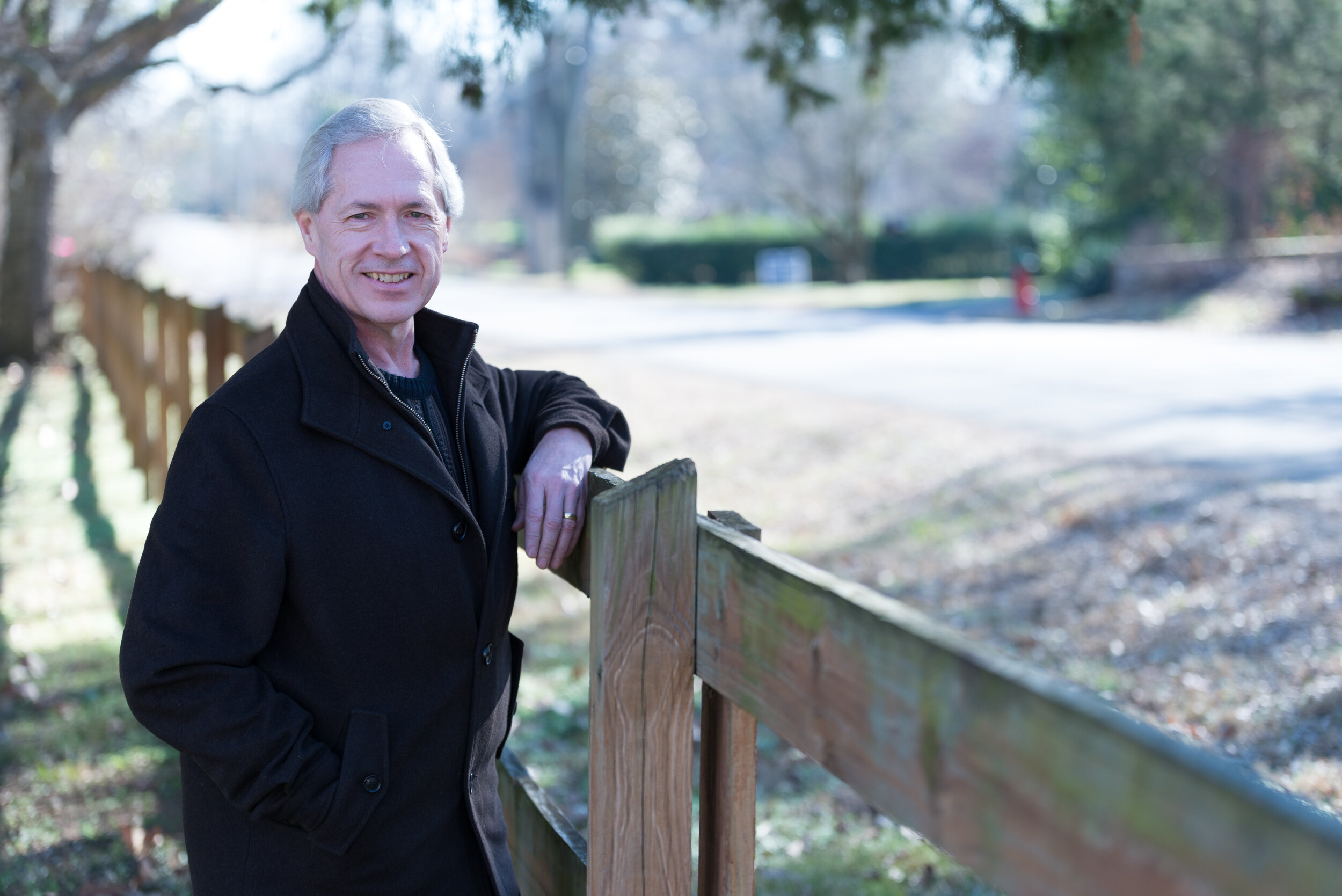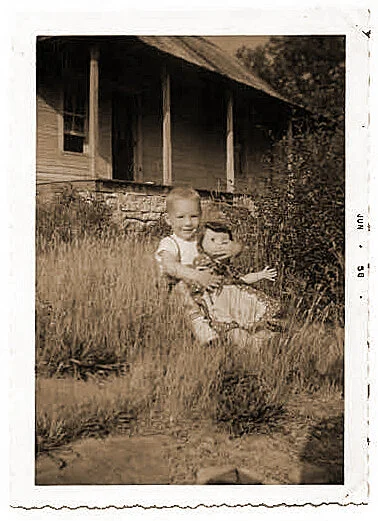
Meet Dr. Bruce Rogers- Vaughn
Who is Dr. Bruce?
A devout Christian minister reared within the passion of Evangelical faith, who is convinced that to ‘believe in Jesus’ today requires a critical re-assessment of capitalism
An academic who taught for many years in an elite university, yet cherishes his roots among farmers and the working-class in Southern Appalachia
A straight, cisgender, white man who grew up in Alabama but is committed to dismantling white supremacy and patriarchy, and to an uncompromising love that embraces all forms of gender and sexual identity and expression
A “religious” person who believes the popular distinction between “religious” and “secular” is a dangerous illusion
As I launched my professional life, during the 1980s, and even while entering the new millennium, I never dreamed of becoming a critic of capitalism.
Growing up in rural Alabama among Southern Baptists, no one could accuse me of springing up from Marxist mud or socialist soil. Besides, I thought capitalism was only about economics. I was entirely focused on my identity as a Christian minister and theologian, developing a psychotherapy practice, and teaching in a progressive divinity school. None of these seemed to have much to do with capitalism or the study of economics. I was terribly wrong.
What happened to this Alabama Baptist boy? Over the span of three decades, as a pastoral psychotherapist, I spent over 30,000 hours carefully listening to people in distress. I noticed important yet subtle changes in the people who talked with me over this period of time. This puzzled and disturbed me. Looking at the research, I discovered we were spending billions on new psychiatric drugs, brain research, and the mental health industry in general. And yet, if outcomes are the measure, we were failing miserably. The facts showed that the rates of mental illness, addiction, and suicide were skyrocketing. The folks talking with me in therapy had become more lonely, depressed, anxious, and/or addicted. They were far more likely to blame themselves for their troubles than the individuals who talked with me during the 1980s. They suffered from shame.
I also began to notice that this reflected changes in our culture. From the talking heads on cable news, to social media, to self-help gurus, to prosperity gospel preachers, to academic and pop psychology, we were being constantly exhorted to “take responsibility” for our feelings, fortunes, and failures. We were encouraged to see ourselves as self-improvement, personal makeover projects. There were no limits to personal growth, apparently, as long as we set our minds to it. As competitors in the market, we just needed to promote our “human capital.” As a rather privileged white male in the professional world, I was seduced toward seeing these messages as “normal.” But I knew such optimistic narratives were not congruent with the changes I was seeing in the counseling office. The people who talked with me, mostly from the middle class, were hard-working and self-critical, yet struggling to get by, or even to have time for friends and family. I started to wonder. What if I had been sold a bill of goods? What if individuals were not simply suffering due to their brain chemistry, or genes, or dysfunctional families of origin, or their lack of motivation or information? What if the water they were swimming in—something in the social surround—was making them increasingly miserable?
And, I had to admit, I was becoming more distressed myself. I grew up in small-town USA, in a working-class family, and in little churches where members were like family. I never doubted I belonged. But as I became more educated and moved into the “professional class,” this sense of belonging was slipping away. And I was worrying more about “measuring up.” Part of me longed to go back home. But, as I visited with parents and relatives who still lived in my hometown, I gradually realized there was no “home” to go back to. The little town where I grew up was becoming a shadow of its former self. Fort Payne, Alabama, the “sock mill capital of the world,” was home to 125 textile mills during its heyday, the late 1990s. Today there are fewer than ten. The childhood poverty rate—the number of children living in households below poverty level—increased from 4% in 1989 to about 30% by 2013. In my research I was learning that this sort of decimation had occurred across the United States during the same period of time. And not just in small towns. Larger, more affluent cities were being divided between prosperous, gentrified, gated zip codes and vast areas of decay. Our country is now defined by an economic inequality that surpasses that of the “robber Barron” era in the late 19th and early 20th century. This has made all of us more anxious, more disconnected from one another, and more worried about “falling from grace.”
Part of my privilege comes from being a psychotherapist. I am a heterosexual, cisgender, middle-class white male. But my work has demanded that I vicariously take into myself the experiences of individuals different from me—women, queer folk, immigrants, people of color, rich people, poor people, young and old, disabled, and the mentally or terminally ill. To be good at what I do, I’ve had to attempt the impossible—to see through their eyes, feel through their skin, identify with their stories as much as my own. This has enriched my life immeasurably. I’ve learned to treasure what makes us different, and to appreciate our common humanity. My gratitude for diversity led me to research the unequal impact of today’s hyper-capitalism. What I discovered confirmed my fears. While even middle-class whites have suffered under this regime, those who are marginalized—women, African-Americans, Hispanics, queer folk, immigrants, children, the disabled, the working class, the poor—have suffered a far worse fate. The powers that run the economy and governments treat such people as expendable. And these people feel it. Many are literally dying from it.
I am also aware, from my experience in both therapy and the classroom, of the plight of young people. Those born since the 1980s typically do not remember having the sense of belonging I enjoyed during my youth. As a group they are more lonely, anxious, and depressed than even the elderly among us. After accidents, suicide is the leading cause of death for the young. They are often burdened by student debt that saps their livelihoods. No matter how hard they work and how much education they get, living-wage jobs elude most of them. Climate change makes them fearful that the earth will not continue to be a hospitable home. My oldest son is in his twenties. My youngest sons, the twins, are currently twelve. Worries about their future often disturb my sleep.
The only hope we have in our time is to work together for our common good. But dominant powers are trying to prevent this. One of their favorite strategies is to divide us. For example, even progressive media push this question: Is the central issue class (economic inequality), or is it the “identity politics” of race, gender, sexuality, (dis)ability, etc.? This is an uninteresting distraction, and based on lies. All politics is identity politics, just as all politics involves class conflict. We will never understand class power without appreciating how it has always been entangled with racism, sexism, and other “isms.” Nor will we comprehend oppressions rooted in identities—or make headway against them—without knowing how class power is integral to how they work and are continually replicated. We can do better than this.
So, what do all these things have to do with capitalism? A silent revolution has occurred, beginning in the 1980s—a shift within capitalism that its critics call “neoliberalism.” Every one of us has been consumed in this wave. We have, without realizing it, bought into its gospel of competition, infinite growth, complacent optimism, meritocracy, and the unquestioned belief that everything is the result of individuals making decisions based on their own self-interests. And, shimmering behind the scenes, this new phase of capitalism remains what capitalism has always been—a patriarchal, imperialist, white supremacist system. This is what colonialism looks like today. Capitalism, in other words, is about the economy, and an increasing inequality of material resources is in its DNA. But it is far more. It defines for us, much like a religion, what it means to be “a good human being.” I am rather confident, consequently, that you can identify with some of what I’ve been saying here. These are things happening in your everyday life.
We can no longer afford to worship at the altars of capitalism. In our bones we know this, even if we don’t think of ourselves as Marxists, or even socialists. For myself, I know this simply as a Christian. (Jesus was recorded as saying: “You cannot love God and money.” And the word capitalism literally means “moneyism.”) Capitalism is making us physically, mentally, and spiritually sick. It sucks our souls dry, erodes our most intimate relationships, dissolves our communities, polarizes our politics, restricts the freedom of markets, and pollutes the planet. For evidence that capitalism connects all these dots together, feel free to consult my book—Caring for Souls in a Neoliberal Age—which will direct you to additional resources. You may also use contact information on this website to invite me to speak to your school, religious congregation, professional association, public health institution, labor union, activist organization, corporate leadership group, or media platform.



